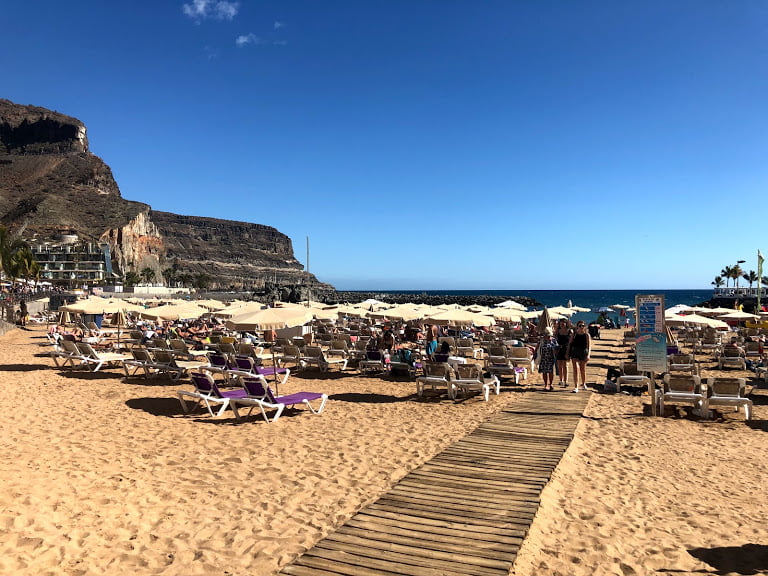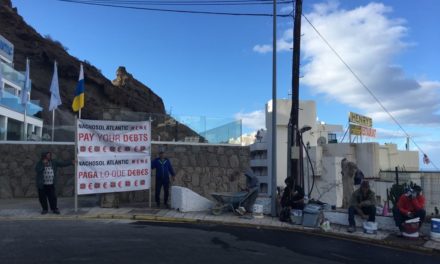 The consequences of the continuing uncertainty surrounding Brexit have been expressed in terms of tourism to Spain during the first three months of 2019 with an overall fall of 4.2% in sales for the British market for the country as a whole, while the Canarian market has seen a 6.8% decrease, according to the Alianza para la Excelencia Turística, known as Exceltur.
The consequences of the continuing uncertainty surrounding Brexit have been expressed in terms of tourism to Spain during the first three months of 2019 with an overall fall of 4.2% in sales for the British market for the country as a whole, while the Canarian market has seen a 6.8% decrease, according to the Alianza para la Excelencia Turística, known as Exceltur.
This industry lobbying alliance, expressed relief for the “respite” that has been provided from the extension to the UK’s final leaving date from the EU following the European Council decision last week, meaning that the new target deadline has been pushed back until October 31, mitigating what they Exceltur have described as “a huge risk.”
The organization made up of some of the largest tourism companies in Spain, especially hotel chains, have said that the extension until October offers an opportunity “to save the high season and provides time to prepare and address new scenarios and competitive foundations for Spanish tourism,” said executive vice president, José Luis Zoreda, at a press conference in Madrid, which took stock of the first quarter results.
The Canary Islands have seen the biggest falls
The greatest decline in British tourism has been in sales to the Canary Islands down -6.8%, followed by the Balearic Islands (-5.6%), the Levantine coast (Murcia -4.7%), the Valencian Community (-4.3%) and Andalusia (-4.6%).
Exceltur, brings together some thirty tourism companies in Spain, considers that the new EU extension rules out an abrupt Brexit, which would have had a negative impact on tourism activity in Spain.
All in all, tourism activity in Spain maintained an overall slowdown in growth, increasing just 1.5% in the first quarter of 2019, strongly influenced by a decline in international demand from the main markets that send visitors to Spain.
Uncertainty linked to Brexit and more moderate business prospects lead Exceltur to revise its estimate for growth in tourism activity for the whole of 2019 to 1.6%, compared to the 1.7% they had estimated in January and the 2% with which they had closed the year 2018.
The Gran Canaria tourist board has been busily trying to deflect away from the weakening figures by focusing on the positives, saying in March that the island had become more of a fashion destination in the domestic tourism and peninsular market, according Minister of Tourism of the Cabildo de Gran Canaria, Inés Jiménez, who said that the work of the Tourist Board in promoting the main fairs and events of the sector throughout many Spanish cities had allowed the Spanish public in general and travel agents to learn first-hand about the novelties of the island destination and include them in updated catalogues for their clients.
According to the global data for the month of February, made available last month, Gran Canaria received overall 403,483 tourists, an increase of 1.7% and 6,776 more people than during the same period of last year, consolidating the island as one of the preferred destinations for Europeans. An observation that was confirmed by the worlds biggest tour operator TUI just before Easter.
The combined Nordic countries, German and British tourists still lead, remaining at the forefront of tourist source markets totalling more than 287,800 people, said Jimenez, who also highlighted a significant increase of 16.2%, 13,500 more travellers, from the traditional German market whose 96,500 visitors somewhat compensated for declines in other markets.
The Nordic market, made up of Norwegian, Swedish, Finish & Danish visitors, is so far this year the main market of origin, accounting for 34.4% of all arrivals in the month of February, at 138,900 tourists, and maintaining numbers with an almost imperceptible decrease of 0.3% representing 445 people less, with respect to the same month of 2018, while from the United Kingdom just 52,340 visitors holidayed on the island, representing a large decrease of 8% amounting to 4,560 people less.
Throughout February the Netherlands sent 17,800 tourists showing a decrease of 5% or 950 people, while Italy increased their number by 1.9% or 174 visitors to total 9,190 people. Gran Canaria received 8,650 travellers from France showing an increase of 1.2% or 105 people, 5,540 people flew from Belgium registering a decrease of 29.6% and from Ireland just 5,500 tourists arrived on the island, amounting to a decrease of 16.5% or 1,080 fewer people.













